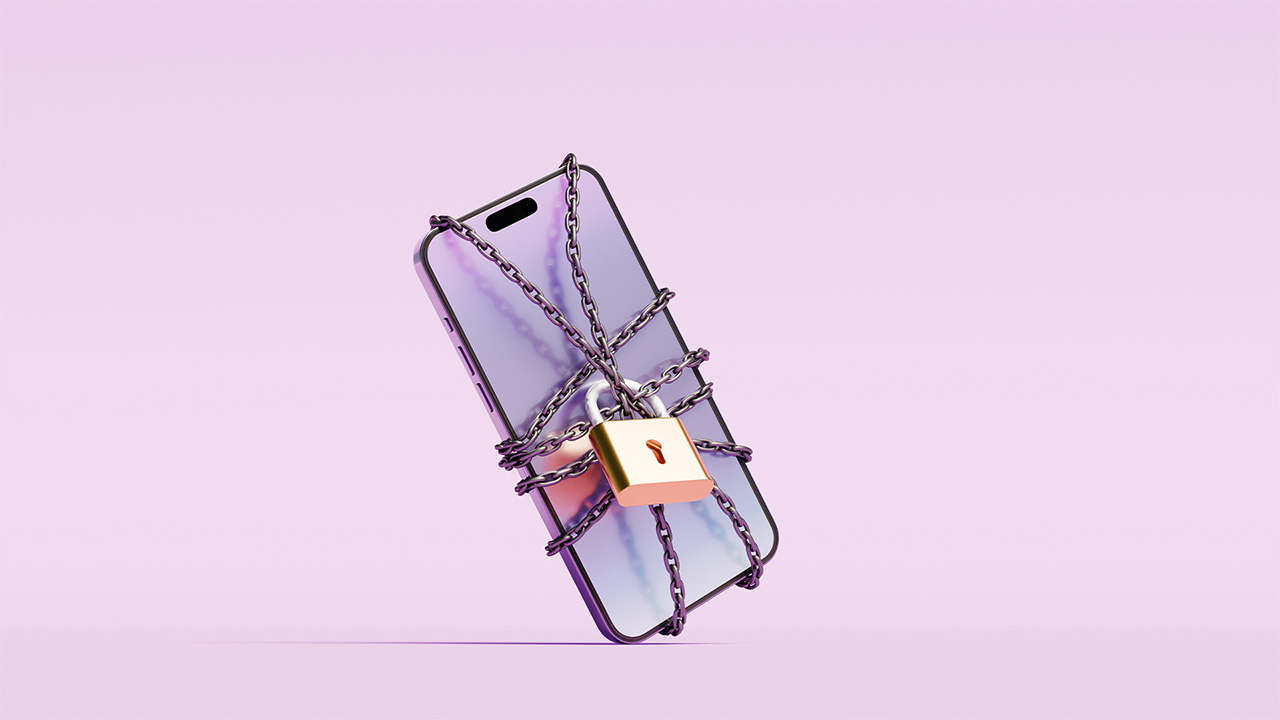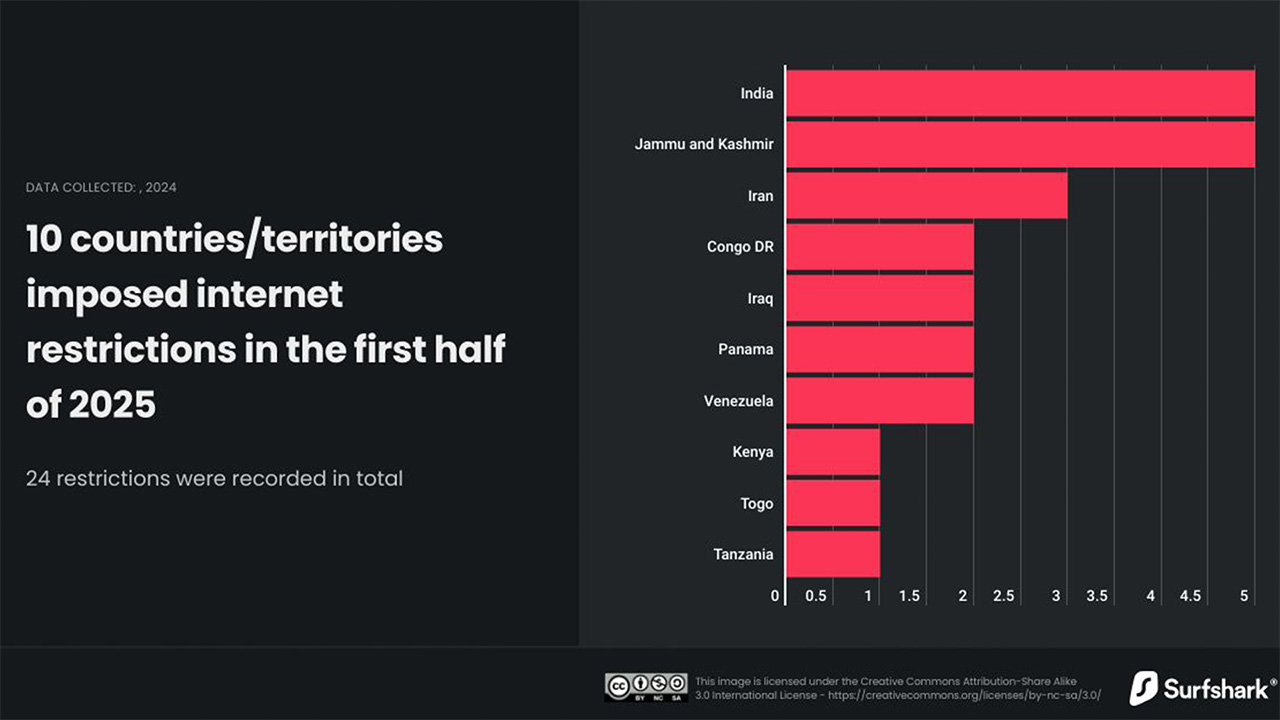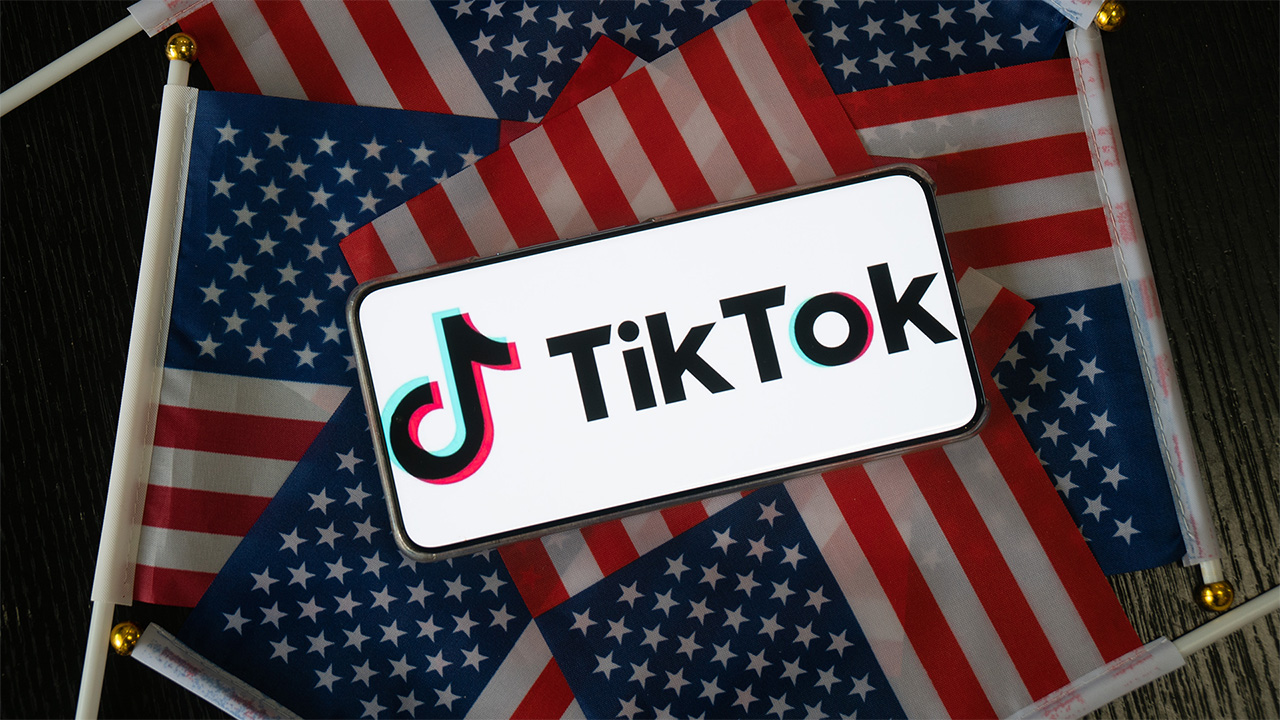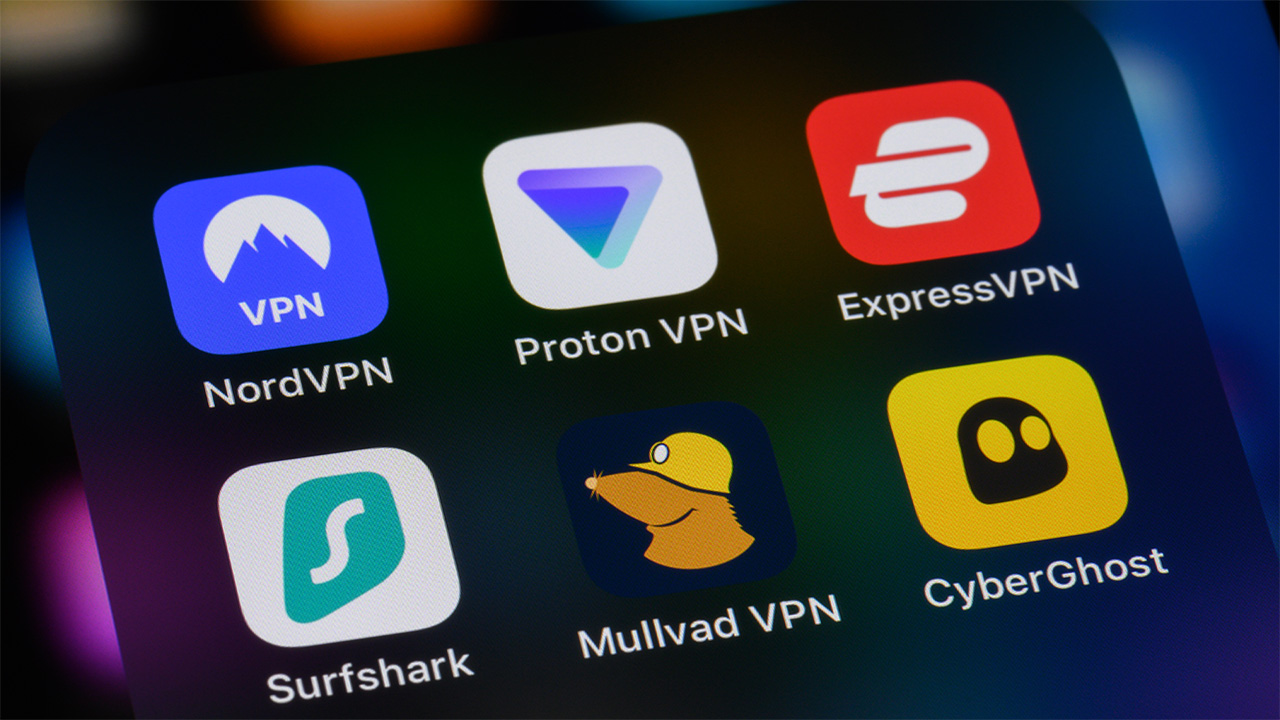Political turmoil and military tensions see 24 internet restrictions imposed so far in 2025
Internet censorship continues to impact millions of people

24 cases of internet restrictions have been imposed in the first six months of 2025, with countless people, activists, and journalists being censored.
One of the best VPNs, Surfshark, monitors cases of censorship through its Internet Shutdown Tracker and cases exceed those recorded in the first six months of 2024.
So far in 2025, 24 internet restrictions have been recorded in 10 countries/territories. The first six months of 2024 saw 20 restrictions in nine countries, with internet censorship going on to impact 4.8 billion people.
This trend could see even more people become victims of internet censorship by the end of 2025, and reinforces how vital it is to oppose internet censorship at every turn.

Asia leads the way
Of the 24 internet restrictions recorded, 15 occurred in Asian countries/territories. India imposed five restrictions, mostly as a result of protests taking place across several regions and cities. The disputed Jammu & Kashmir region also saw five restrictions amid political turmoil.
Iran was third on the list, recording three internet restrictions. These largely took place during the height of its military tensions with Israel and saw demand for VPNs peak at 707% over the baseline.
Congo DR, Iraq, Panama, and Venezuela all restricted the internet twice, while Kenya, Togo, and Tanzania recorded one case of internet restriction.
The Proton VPN Observatory saw a VPN spike of 12,000% over the baseline in Togo as protestors called for the president's resignation following controversial constitution changes.
NetBlocks, which works in partnership with Surfshark to run its tracker, reported at least three days of internet blackouts in Panama. This took place at the end of June and coincided with protests by banana workers.
According to Surfshark this was the first time Panama has imposed internet restrictions since the provider began monitoring data in 2015.
⚠️ Update: Metrics show the internet blackout in the Bocas del Toro Province of #Panama is in its third day, with emergency calls also impacted; the measure, imposed in response to banana workers' protests, continues to limit economic activity and freedom of expression pic.twitter.com/r6AZCEDl91June 24, 2025
"Over the years, governments have used internet shutdowns to control and silence journalists, activists, and the public," said Justas Pukys, VPN Product Manager at Surfshark.
"Internet blackouts can be dangerous, especially during critical events such as elections, protests, or other political turmoil. Losing internet access makes it harder to stay in touch with family members, access critical news outlets, and share urgent information with the world about unfolding events."
"Since internet access is now essential to basic human rights, it’s more important than ever to track cases of mass censorship."
Numbers even higher for social media
Social media is often seen as an easy target for authorities looking to impose restrictions. Social media restrictions differ from network restrictions but can occur simultaneously.
Surfshark reports that 24 countries are currently blocking social media or voice over IP (VOIP) services.
Telegram is the most targeted app, with X/Twitter close behind. Venezuela blocked Telegram in the early hours of January 11 as President Nicolás Maduro was sworn in for a third term. A few days earlier, Venezuela had gone on a VPN banning spree as 21 providers had their websites blocked.
In March, the Proton VPN Observatory recorded a VPN spike in Turkey of 1,100% over the baseline. The government restricted access to YouTube, Instagram, TikTok, and X, as protests engulfed the country following the arrest of President Erdogan's main political rival.
TikTok was also blocked in Albania – another country imposing its first restriction – as a one-year ban came into effect in March.
The app famously went offline for a short period in the US as rumors surrounding its ban and/or potential purchase circled. President Trump has since extended the TikTok ban twice and it looks unlikely to be shut down again.
Although this move wasn't done with direct censorship in mind, and therefore not classed as an internet restriction, it shows that no country is immune to restrictions and it should be challenged at every level.

VPNs are crucial
VPNs are on the front line when it comes to combating internet censorship, and they are a vital tool for those living under restricted conditions.
Many of the leading VPNs are effective at bypassing restrictions of varying severity. In most instances, all it takes to bypass blockages is connecting to a server in a different country and accessing the app or site being blocked.
But in some cases, you need one of the most private VPNs as government censorship is more sophisticated – China and Russia are the two leading examples here.
Advised for bypassing all restrictions, but especially important for sophisticated restrictions, is VPN obfuscation.
Obfuscated servers hide the fact you're using a VPN and make it harder for sites, internet service providers, and governments to block your traffic and identify you.
NordVPN, Surfshark, ExpressVPN, and Proton VPN all have obfuscated servers, as do other secure providers not featured in our best VPN list.

All of these providers have strict no-logs policies, which mean your internet traffic is never recorded, stored, shared, or sold. Double VPN or multi-hop features are also present. These route your traffic through two encrypted VPN servers, rather than the usual one, for added security.
Proton VPN champions anti-censorship features which are specifically designed to bypass internet restrictions and keep vulnerable users safe. These include Proton VPN Free, Guest Mode, and the ability to disguise its Android VPN app.
Many VPNs also offer free emergency VPN subscriptions to journalists, activists, and anyone living under internet censorship unable to access a free and open internet.
Providers like Proton VPN and Windscribe do this in the form of some of the best free VPNs, while others like NordVPN and Surfshark have dedicated emergency VPN programs.
Follow Tom's Guide on Google News to get our up-to-date news, how-tos, and reviews in your feeds. Make sure to click the Follow button.
We test and review VPN services in the context of legal recreational uses. For example: 1. Accessing a service from another country (subject to the terms and conditions of that service). 2. Protecting your online security and strengthening your online privacy when abroad. We do not support or condone the illegal or malicious use of VPN services. Consuming pirated content that is paid-for is neither endorsed nor approved by Future Publishing.

George is a Staff Writer at Tom's Guide, covering VPN, privacy, and cybersecurity news. He is especially interested in digital rights and censorship, and its interplay with politics. Outside of work, George is passionate about music, Star Wars, and Karate.
You must confirm your public display name before commenting
Please logout and then login again, you will then be prompted to enter your display name.
 Club Benefits
Club Benefits





